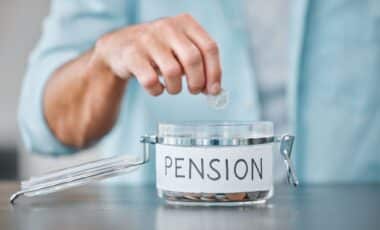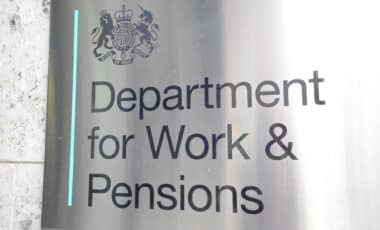The Department for Work and Pensions (DWP) has reaffirmed that nearly 500,000 pensioners aged 80 and over will continue receiving an additional 25p per week on top of their basic state pension, a measure first introduced in 1971 and unchanged since.
The announcement, which highlights the continuation of one of the longest-standing entitlements in the UK’s welfare system, comes amid broader discussions around the future sustainability of pension policies.
According to GB News, the modest top-up remains automatic for eligible recipients and is embedded in the wider framework of age-related benefits, offering a symbolic, if limited, form of additional state support.
Historical Context and Intent Behind the Policy
When the 25p age addition was introduced in 1971, the weekly state pension stood at £6, making the supplement a significant 4% increase at the time.
Today, however, the 25p weekly top-up equals just £13 per year, offering little practical value in real terms. It automatically applies to pensioners born in 1944 or earlier, with no action required on their part.
According to a Parliament research briefing from 2013, the policy was introduced
In recognition of the special claims of very elderly people who on the whole need help rather more than others.
Despite that intent, the amount has never been uprated by any government, remaining fixed for more than five decades.
Unchanged Benefit and the Impact of Inflation
Successive governments have refrained from increasing the 25p addition. The rationale has typically been that
Greater priority should be given to protecting the level of the basic benefits
or that additional resources should be directed through alternative support measures.
Like the £10 Christmas Bonus, which also dates back to 1971, the 25p top-up has remained static despite changes in the economic landscape and living standards for pensioners.
State Pension Increases Under the Triple Lock
In April 2024, the triple lock guarantee triggered a 4.1% increase in the basic state pension, raising it from £169.50 to £176.45 per week. The new state pension also rose, moving from £221.20 to £230.25 per week.
To qualify for the full basic state pension, individuals typically need at least 30 years of National Insurance contributions. Pensioners can verify their entitlements through the government’s online forecast tool.
Administrative Costs and Government Response
Despite the benefit’s low monetary value, its cumulative cost remains notable. For 2024/2025, the total annual cost of the age addition is estimated at £50.8 million.
Labour MP Jonathan Davies recently questioned the Government in Parliament regarding the relevance of maintaining such a small top-up and whether administrative costs outweigh the payments themselves.
In response, Pensions Minister Torsten Bell emphasised that the addition is “simple to administer”, with payments integrated into regular pension disbursements. He stated that “Administrative costs therefore, do not exceed the total amount paid.”
Still, some operational costs remain. In 2024, the DWP issued 474,239 letters to notify pensioners nearing their 80th birthday about the supplement, incurring £278,030 in printing and postage.
Persistent Legacy of a Symbolic Benefit
The 25p age addition was created in a very different economic environment, one in which even a small increase represented a meaningful enhancement. Today, its practical impact has faded, but it remains a symbolic gesture rooted in social policy history.
Despite parliamentary scrutiny and calls for review, the government continues to defend the measure as part of a broader commitment to automatic and equitable state pension administration.
For now, the supplement remains part of the fabric of the UK’s pension system—unchanged since its inception.









